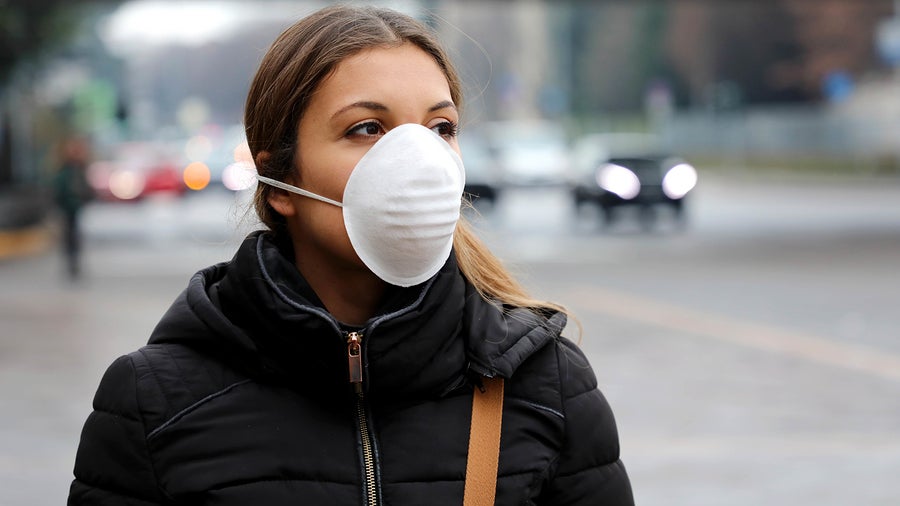Now, more than ever, it’s critical that everyone has access to health coverage. The only way to effectively respond to a pandemic is to make sure that everyone can get the screening and treatment they need. Unfortunately, even with three new laws to address the COVID-19 public health emergency, there are still gaps in coverage, especially for immigrant communities.
First, let’s take stock of the pre-pandemic coverage options for immigrants.
Medicaid and CHIP coverage for noncitizens is limited to certain lawfully present immigrants, such as legal permanent residents, refugees, and asylees; and such coverage is subject to restrictions. Thus, even among lawfully-present immigrants, gaps in eligibility remain. For example, lawfully-present immigrants must have a “qualified” immigration status and wait five years after obtaining qualified status before being eligible to enroll in Medicaid/CHIP. States have the option to waive the five-year waiting period for qualified, lawfully-residing children and pregnant women, and as of this year, 35 states have waived the five-year waiting period for children.
With the exception of emergency Medicaid services, federal funds are not available for undocumented children who would otherwise be eligible for Medicaid, CHIP, or subsidized Marketplace coverage, but for their immigration status. Six states (California, Illinois, Massachusetts, New York, Oregon, and Washington) and the District of Columbia (D.C.) use state-only funds to cover Medicaid/CHIP income-eligible children regardless of immigration status.
What’s changed for immigrant children and families since the pandemic started?
Not much, unfortunately. There has been an influx of grant funding for COVID-19 screening and treatment, but nothing more comprehensive.
The first COVID-19 bill, the Coronavirus Preparedness and Response Supplemental Appropriations Act (P.L. 116-123), provided $8.3 billion in emergency funding for federal agencies to respond to the coronavirus outbreak. This funding was critical for the CDC and public health agencies, but the bill did not include policy changes to help the uninsured.
The second COVID-19 bill, the Families First Coronavirus Response Act (P.L. 116-127), included a number of Medicaid-related provisions that my colleagues have written about such as increased federal funding for Medicaid and important consumer protections to keep Medicaid beneficiaries covered.
The Families First legislation also added a new state option to cover COVID-19 testing for uninsured individuals that is 100% federally funded (see §6004). While this option will help some uninsured individuals obtain COVID-19 screening without cost-sharing or other fees, in order to be eligible, immigrants must meet Medicaid’s general immigrant eligibility requirements described above. This option will not provide screening services for other immigrant groups. Even for groups who do meet the eligibility requirements, this option is limited to screening and does not include coverage for treatment.
Fortunately, the Families First legislation also included $1 billion in additional funding to the Public Health and Social Services Emergency Fund for the National Disaster Medical System to reimburse the costs of providing COVID-19 diagnostic testing and services to individuals without health insurance (see Title V). This funding will pay for testing at community health centers, outpatient clinics, and doctors’ offices and immigrants can access these services regardless of their immigration status. Receipt of testing or other health care services through the disaster medical system will not be considered a negative factor in a public charge determination.
The third COVID-19 bill, the Coronavirus Aid, Relief, and Economic Security Act (CARES Act) is a huge bill – almost 900 pages long – and full of provisions designed to help with the pandemic response and shore up the economy.
Advocates for immigrant children and families hoped that the CARES Act would do more to provide holistic coverage for immigrants, but unfortunately, it did not. However, the CARES Act does include $27 billion in additional funds for the Public Health and Social Services Emergency Fund (see Title VIII) and additional support for community health centers (see Title IV, Subtitle E, Part IV §3831). The CARES Act also includes a $150 billion Coronavirus Relief Fund that will provide states and local governments with extra funding to offset unexpected, COVID-19 related spending between March 1, 2020 and December 30, 2020 (see Title V, §5001). These funding streams will serve many purposes, but could help provide COVID-19 screening and treatment to uninsured individuals and immigrants regardless of citizenship status and/or offset related expenses.
What’s next?
Access to testing and COVID-19-related treatment is critical, and the COVID-19 related bills to date will make big improvements. But access to preventive services and holistic care is key to good health in the short and long term, and even these seemingly large pots of funding may prove insufficient as the pandemic takes hold in the U.S.
It is unlikely that the CARES Act is the final word from Congress on COVID-19. Future legislation should take the additional steps needed to ensure that everyone has access to coverage, or at the very least, screening and treatment related to COVID-19. House Democrats have introduced the Take Responsibility for Workers and Families Act (H.R. 6379), which lays out some additional policy changes that could help immigrant communities access needed care. For example, H.R. 6379 restores Medicaid coverage for citizens of Freely Associated States (see Division G, Title I, §109). (If you’re not familiar with the history between the U.S. and the Freely Associated States, you may want to watch this PBS documentary about people displaced from the Marshall Islands now living in Arkansas, or read this Politico article about how a community in Iowa has tried to make up for the federal government’s failure to honor its promise to provide health care to displaced Marshall Islanders after the U.S. dropped a nuclear bomb on their homeland.)
Future COVID-19-related legislation should also block the public charge rule in order to make sure that people in immigrant communities are able to access needed services without fear. Now is the time to come together and do everything we can to keep our whole community safe and healthy.


